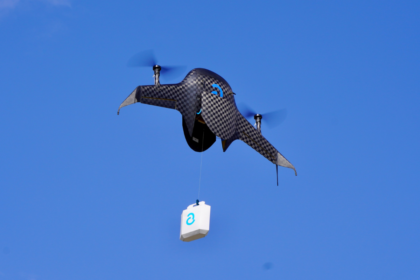The United Kingdom is experiencing a bioengineering renaissance. From Cambridge labs developing age-reversal therapies to London startups engineering plastic-eating enzymes, British companies are pushing the boundaries of what’s possible when biology meets engineering.
- Reversing Aging: Clock Bio’s Cellular Renaissance
- Engineering Nature’s Library: Basecamp Research
- Molecular Medicine Revolution: Bicycle Therapeutics
- Sustainable Manufacturing: The Plastic Solution
- Drug Discovery Acceleration: Apollo Therapeutics
- Building the Ecosystem: Infrastructure and Acceleration
- The Global Context and UK Advantages
- Challenges and Future Prospects
- The Convergence Revolution
- Biological Futures
Based at Imperial College London, SynbiCITE is the UK’s National Industrial Translation Centre for Engineering Biology, accelerating and promoting the commercial exploitation of synthetic biology, providing crucial infrastructure that has helped nurture a new generation of groundbreaking companies.
As we enter 2026, the UK’s bioengineering ecosystem is maturing rapidly, with startups progressing from university labs to commercial applications that could reshape healthcare, manufacturing, and environmental solutions.
The end of 2024 and beginning of 2025 have seen a flurry of reports, surveys, recommendations and articles about the potential of Engineering Biology to impact UK society and economy, signaling growing recognition of the sector’s transformative potential. Here are the startups leading this biological revolution.
Reversing Aging: Clock Bio’s Cellular Renaissance
At the forefront of longevity research sits Clock Bio, headquartered in Cambridge, which aims to extend and improve quality of life by reversing the effects of ageing in cells using human pluripotent stem cells. They develop treatments to prevent and treat age-related diseases by decoding rejuvenation programmes in human cells.
Clock Bio represents a new approach to aging research that goes beyond treating symptoms to address the fundamental biological processes of cellular aging. Their work with pluripotent stem cells, cells capable of becoming any type of cell in the body, offers the potential to essentially reset the biological clock of aged cells.
The company’s approach is particularly sophisticated because it focuses on understanding and replicating natural rejuvenation processes rather than imposing artificial interventions. By studying how certain cells naturally resist aging or recover from damage, Clock Bio aims to develop therapies that could extend healthy lifespan rather than simply prolonging life.
This research has profound implications beyond individual health outcomes. If successful, Clock Bio’s technologies could transform healthcare economics by preventing age-related diseases rather than treating them after they develop, potentially saving healthcare systems billions while dramatically improving quality of life for aging populations.

Related: The Rise Of Engineering Biology : Can The UK Lead A Biotech Renaissance
Engineering Nature’s Library: Basecamp Research
One of the most innovative approaches to bioengineering involves learning from nature’s existing solutions rather than starting from scratch. UK-based startup Basecamp Research develops a knowledge graph with a comprehensive view of genetic data found in natural environments and labels genetic sequences with geological, environmental, and chemical tags.
This provides a unique, contextualized data source. Basecamp Research is essentially creating a comprehensive map of biological diversity, but with a twist. They’re organizing this information in ways that make it immediately useful for bioengineering applications.
By linking genetic sequences to specific environmental conditions and chemical processes, they’re building what could be described as a “biological search engine” that helps other companies find natural solutions to engineering problems.
This approach is revolutionizing how bioengineering companies approach product development. Instead of spending years trying to engineer new biological systems from scratch, companies can use Basecamp’s platform to identify existing biological solutions that evolution has already refined over millions of years.
The commercial applications are vast. Pharmaceutical companies can discover new drug compounds, manufacturing companies can find biological processes for producing materials, and environmental companies can identify organisms that naturally clean up pollution or process waste.
Molecular Medicine Revolution: Bicycle Therapeutics
Cambridge-based Bicycle Therapeutics is pioneering an entirely new class of drugs that could overcome many limitations of current pharmaceutical approaches. Bicycle Therapeutics is developing “bicycles” – fully synthetic short peptides constrained in a two-loop structure.
These bicyclic peptides combine the targeting savvy of antibodies with the cell penetration and manufacturing advantages of small molecules.Traditional drug development faces a fundamental trade-off: small molecules can penetrate cells effectively but often lack specificity, while large molecules like antibodies are highly specific but struggle to enter cells.
Bicycle Therapeutics has engineered a solution that captures the best of both approaches. Their “bicycle” molecules are small enough to penetrate cells but structured in ways that provide the targeting precision of much larger molecules. This could enable treatment of diseases that are currently difficult to address because the relevant targets are inside cells rather than on cell surfaces.
The company’s approach also offers manufacturing advantages. Unlike antibodies, which must be produced in complex biological systems, bicycle molecules can be synthesized chemically, potentially making them more cost-effective to produce and more stable for distribution in challenging environments.
Sustainable Manufacturing: The Plastic Solution
Environmental bioengineering represents one of the most promising applications of synthetic biology, with UK companies leading efforts to address global sustainability challenges. Companies like Birch Biosciences are engineering enzymes for plastic recycling using synthetic biology and machine learning.
Their enzymes function as high performance “molecular scissors” that efficiently break down plastic polymers into chemical building blocks that can be used to manufacture high quality recycled materials.The plastic waste crisis requires solutions that can operate at industrial scale while being economically viable.
Birch Biosciences’ approach addresses both challenges by creating enzymes that can break down plastics more efficiently than existing chemical recycling methods, while producing high-quality outputs that can be reused in manufacturing. Their integration of machine learning with enzyme engineering represents a sophisticated approach to biological design.
Rather than relying on trial-and-error experimentation, they can use computational methods to predict which enzyme modifications will improve performance, dramatically accelerating development timelines.This work has implications beyond plastic recycling.
The same approach could be applied to breaking down other persistent pollutants or creating biological systems for manufacturing chemicals that are currently produced using environmentally harmful processes.
Drug Discovery Acceleration: Apollo Therapeutics
The translation of academic research into practical medical treatments remains one of the most challenging aspects of bioengineering. Apollo Therapeutics’ approach to drug development is to take breakthroughs in basic medical research, for example, from universities, and progress that research into pre-clinical and clinical-stage assets, with the goal of eventually turning them into new treatment options.
Apollo Therapeutics addresses a critical gap in the bioengineering ecosystem. Universities excel at fundamental research but often lack the resources and expertise needed to transform discoveries into commercially viable treatments. Pharmaceutical companies have the resources for late-stage development but may be risk-averse about investing in early-stage technologies.
By focusing specifically on this translation challenge, Apollo Therapeutics helps ensure that promising university research doesn’t remain trapped in academic labs. Their model involves identifying breakthrough research, providing the resources needed for initial development, and then progressing promising candidates toward clinical trials.
This approach is particularly valuable for bioengineering applications, which often require specialized expertise that spans multiple disciplines. Apollo’s team can provide the combination of biological, engineering, and commercial expertise needed to move complex bioengineered therapies from concept to clinic.
Building the Ecosystem: Infrastructure and Acceleration
The success of individual startups depends heavily on the supporting ecosystem, and the UK has invested significantly in creating infrastructure for bioengineering innovation. The UK’s first Engineering Biology accelerator programme announced by Bio-start demonstrates growing recognition of the sector’s potential and the need for specialized support.
This accelerator program is significant because bioengineering startups face unique challenges that differ from traditional technology companies. They typically require longer development timelines, specialized laboratory facilities, complex regulatory navigation, and access to biological materials and databases.
The accelerator model provides not just funding but also access to specialized infrastructure, regulatory expertise, and connections to potential commercial partners. This comprehensive support approach is essential for bioengineering startups that must navigate complex scientific, regulatory, and commercial challenges simultaneously.
The Global Context and UK Advantages
The UK’s bioengineering sector benefits from several unique advantages that position it well for global competition. The country’s strong university research base, particularly in biological sciences, provides a steady stream of fundamental discoveries that can be translated into commercial applications.
The UK’s regulatory environment, while rigorous, is generally supportive of innovation in biotechnology. Organizations like the Medicines and Healthcare products Regulatory Agency (MHRA) have developed expertise in evaluating novel biological therapies, providing startups with clearer pathways to commercialization.
Additionally, the UK’s proximity to European markets, combined with strong scientific collaboration networks, gives British bioengineering companies access to diverse markets and research partnerships. This international connectivity is crucial for companies that need to access global talent, funding, and commercial opportunities.

Challenges and Future Prospects
Despite these advantages, UK bioengineering startups face significant challenges. Competition for talent is intense, particularly for individuals with combined expertise in biology, engineering, and data science. Manufacturing scale-up remains difficult, as the UK has limited biomanufacturing capacity compared to countries like the United States and Germany.
Funding, while improving, still lags behind other technology sectors. Bioengineering companies typically require larger initial investments and longer development timelines than software companies, making them less attractive to some investors focused on quick returns.
However, the trajectory appears strongly positive. Engineering Biology has the potential to impact UK society and economy in ways that are only beginning to be understood. As these companies mature and demonstrate commercial success, they’re likely to attract increased investment and talent, creating positive feedback effects for the entire ecosystem.
The Convergence Revolution
What makes the current generation of UK bioengineering startups particularly exciting is their sophisticated integration of multiple advanced technologies. Companies are combining synthetic biology with artificial intelligence, nanotechnology with genetic engineering, and materials science with cellular biology in ways that were impossible just a few years ago.
This convergence is enabling solutions to problems that have been intractable using traditional approaches. Climate change, aging, disease, and sustainable manufacturing all represent challenges that require the kind of interdisciplinary innovation that bioengineering companies specialize in.
The UK companies profiled here represent just the tip of the iceberg. Across the country, hundreds of startups are working on applications ranging from sustainable food production to personalized medicine, environmental remediation to advanced materials manufacturing.
Biological Futures
The UK’s bioengineering startups are building more than just companies, they’re constructing the biological infrastructure of the future. From reversing cellular aging to engineering plastic-eating enzymes, these companies are demonstrating how biology can be engineered to solve some of humanity’s most pressing challenges.
What distinguishes the current generation of UK bioengineering companies is their combination of scientific rigor with commercial sophistication. These aren’t just academic spin-offs pursuing interesting research, they’re companies with clear commercial strategies, experienced management teams, and realistic pathways to market impact.
As we look ahead to the rest of the decade, these companies are likely to play increasingly important roles not just in the UK economy but in global efforts to address challenges that affect everyone. The biological solutions they’re developing today could reshape healthcare, manufacturing, and environmental management in ways that are difficult to predict but impossible to ignore.
The future of bioengineering is being written in UK labs and offices today, and these startups are the authors of that future. Their success will depend not just on scientific breakthroughs but on their ability to navigate the complex path from laboratory bench to global impact. Based on their progress so far, that future looks remarkably promising.






